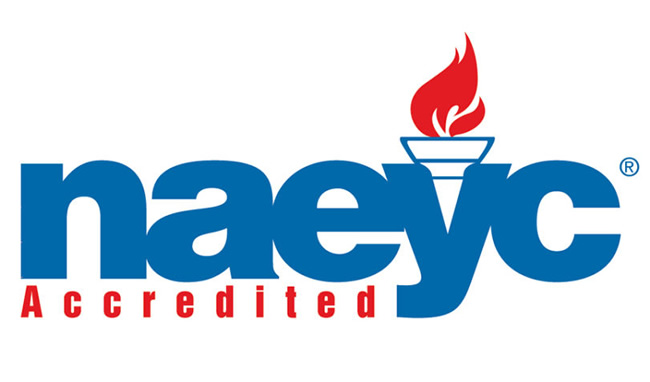About the Phyllis and Richard Leet Center for Children and Families
The Northwest Missouri State University Phyllis and Richard Leet Center for Children and Families is an educational setting for community children, and a teaching and research Laboratory for University students, faculty, and staff.
 The Leet Center is accredited by the National Association for Accreditation of Young Children (NAEYC).
The Leet Center is accredited by the National Association for Accreditation of Young Children (NAEYC).
Leet Center serves approximately 90 families with children from three through five years of age (preschool and Pre-K), kindergarten (extended care), and first through sixth grade (Bearcat Club). Promoting high quality early care and education in a model setting is a primary goal.
Project-Based Play
The Laboratory School has followed a constructivist model since 1991, using Project Construct as our curriculum model. This curriculum is child-initiated, providing opportunities for the children that support and enrich their development, learning, and growing independence. The Laboratory School’s curriculum is child-centered, interest-based, and hands-on to encourage each child’s growing independence. Children’s interests guide the selection of themes and projects for exploration. The Missouri Early Learning Standards provide the framework for planning play-based learning centers and large group times around the children’s topic of interests. Each room is designed with interest centers (blocks, dramatic play, manipulatives, art, sensory, library, music & movement, computers, etc.) and children choose from a variety of developmentally appropriate activities throughout the day. Each classroom includes a balance of child- and teacher initiated activities designed to actively engage children in learning throughout the day and promote their creative expression. Assessment is an integral part of curriculum planning. Monitoring and documentation of children’s participation within the learning environment is on-going and formally shared with families twice a year at parent-teacher conferences.
The classrooms are rich in language/literacy opportunities and experiences. Such opportunities include but are not limited to: stories, finger plays, poems, labeling of items in the classroom, scaffolding interactions through play-based learning center, family style dining, and special times for children to share ideas and thoughts. Through special times during the day to share things from home; participate in executing specific jobs that contribute to the smooth functioning of a school family; and encouragement to pursue topics of interest, our curriculum promotes the development of emotional intelligence, problem-solving skills, and a strong home-school connection for children to become life-long learners.